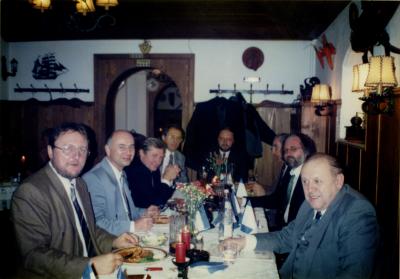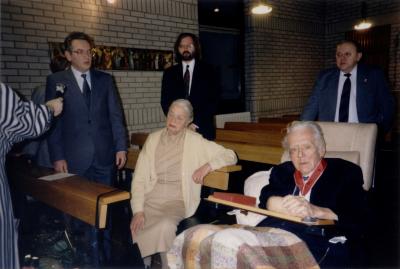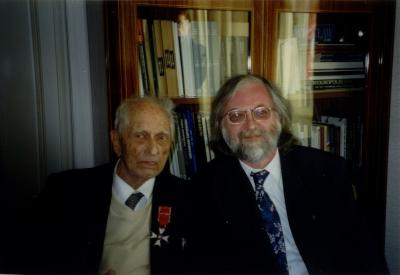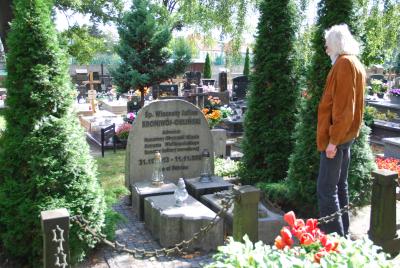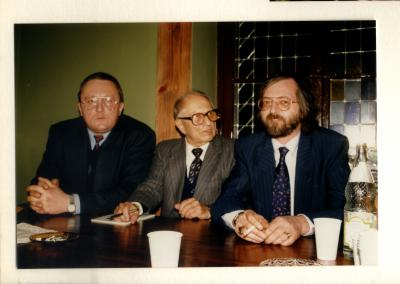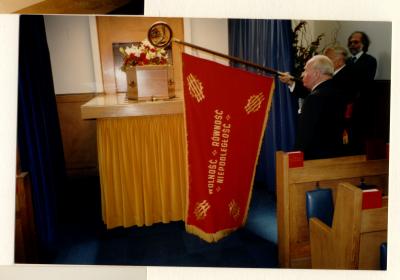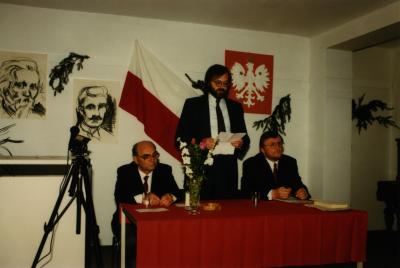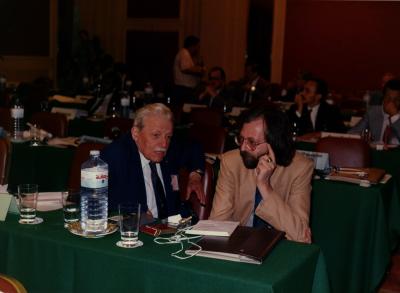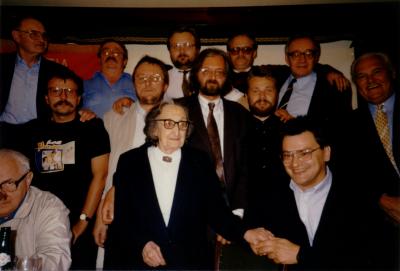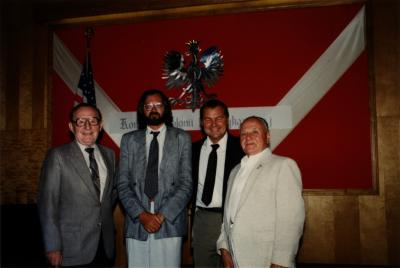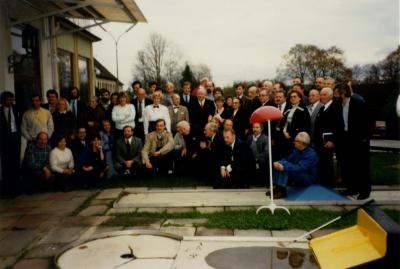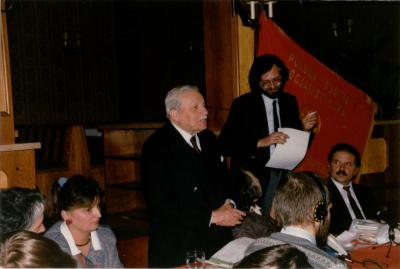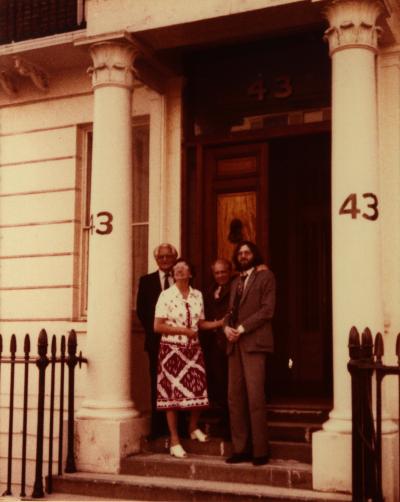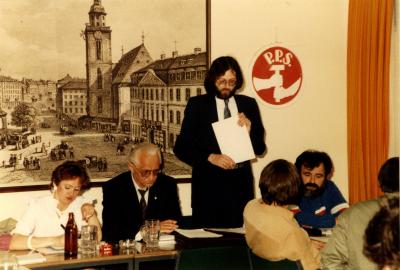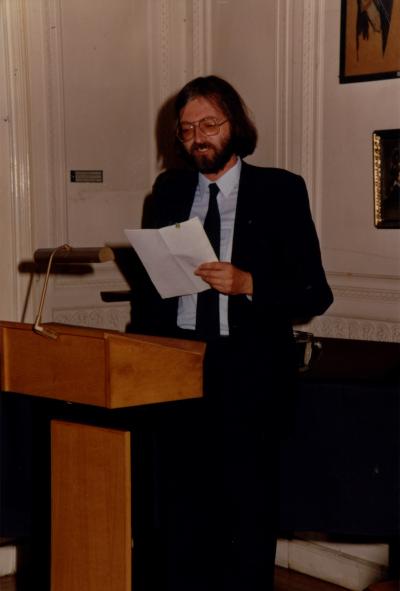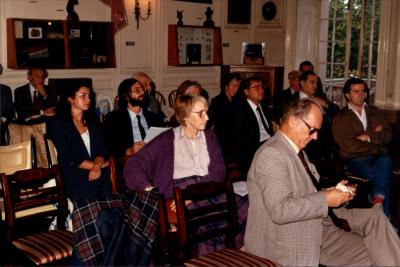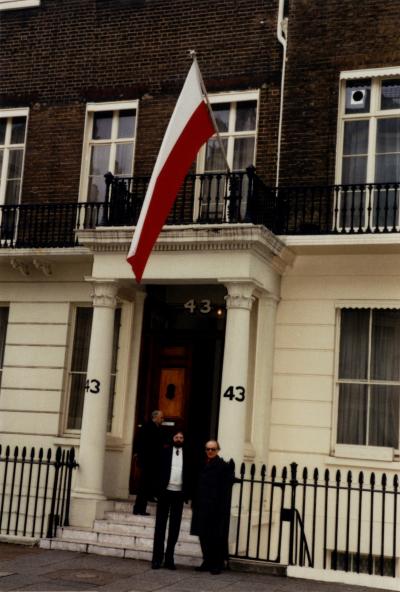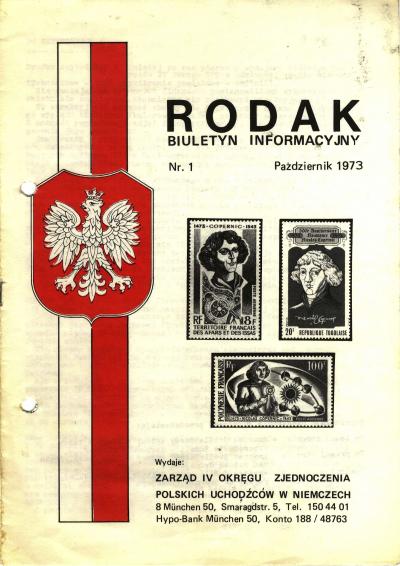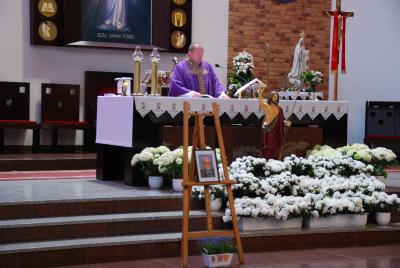Dedicated to Poland: Jacek Kowalski (1950–2019)

An eventful life in the People’s Republic of Poland
Jacek Kowalski was born in Ostrów Wielkopolski on 5 May 1950 to a family with strong patriotic roots. His grandfather, Aleksander Dubiski (1886–1939), was a Polish Army officer and a doctor, and was a highly regarded member of the community in Ostrów Wielkopolski. When the First World War broke out, Aleksander was conscripted into the Prussian Army as a lieutenant and was assigned to a field hospital in Ostrów Wielkopolski. At the outbreak of the Greater Poland Uprising, he served as commander of the field hospital. He was one of the founders of the Republic of Ostrów (Republika Ostrowska, 10–26/11/1918). Later, he fought on the Lithuanian-Belarusian front during the Polish-Bolshevik War. During the course of the war, he was promoted to the rank of captain. After the war ended, he returned to Ostrów Wielkopolski, where he became the director of the district hospital. In November 1939, after Germany invaded Poland, he was arrested, together with 27 other members of the local elite. His family were deported to a camp. On 14 December 1939, he was executed in Winiarski forest near Kalisz. Aleksander Dubiski is buried alongside other participants in the Greater Poland Uprising in the cemetery in Ostrów Wielkopolski.
Jacek Kowalski’s mother, Maria Dubiska-Kowalska (1924–1998), continued the fight for independence during the Second World War. At that time, she was living in Warsaw, where she attended school and survived the siege of the city. In October 1939, she and her family returned to her hometown of Ostrów. After her father Aleksander was arrested, she and other family members were deported to the camp at Nowe Skalmierzyce. In January 1940, the German authorities decided to close the camp and deport the prisoners to Kielce in the General Governorate. She and her family were frequently forced to move from one place to another due to the difficult living conditions. First, she went to live with her family, before moving to Starachowice, where she remained for some time. To avoid having to work as a forced labourer, she first found a job at a local sawmill, before joining the “Reichswerke Hermann Göring” industrial conglomerate, where she was employed in the hard metal division. She soon found out that a group from the Association for Armed Struggle of the Home Army (Związek Walki Zbrojnej / Armia Krajowa) was active on the factory site. From 1942 onwards, Maria worked undercover as a liaison officer under the codename “Maryla” for a partisan unit led by Lt./Mjr. Jan Piwnik (1912–1944), codename “Ponury”. Her task was to bring reports to the “forest”. Despite the many risks involved, she succeeded in smuggling a large number of documents during this time, including the entire archive of the group’s commander, “Ponury”. For many years after the end of the Second World War, she remained silent about her underground activities. Her story and her dedication to the cause were made known to the public during the 1960s by Cezary Chlebowski, who wrote about her in the book “Pozdrówcie Góry Świętokrzyskie” (“Greet the Holy Cross Mountains”). After her children were born, she placed a great deal of importance on bringing them up as patriots and supporters of independence.
Jacek Kowalski went to primary school no. 4 and the III general lyceum in his home town. He passed his higher school leaving exams in 1968. He was interested in maritime trade, and moved to Sopot, where he sat the entrance exam for the “Higher College of Trade” (Wyższa Szkoła Ekonomiczna) (formerly the “Maritime Trade College”). Although he passed the exam, he was not accepted onto the course at first. As he recalled: “I passed the entrance exam, but I didn’t have enough points to get on the course, since I had no points for my family of origin, and I was not accepted”. He therefore decided to take an entrance exam for the university in Toruń. At the same time, it emerged that he would after all be allowed to enter the study programme at the faculty for international trade at the Higher College of Trade in Sopot, where he studied from 1968 to 1971. At this point, nobody could have known that events would suddenly take a tumultuous turn. In December 1970, he was staying with friends in Kołobrzeg. They returned to Sopot on 13 December. “I hadn’t heard anything about price increases. In Sopot, we found out that the workers were going out on the streets and striking”, he explained.
Simply out of curiosity, he and a friend travelled to Gdańsk to see what was going on there. In Gdańsk, he witnessed the evacuation of the voivodeship committee of the Polish United Workers’ Party (Polska Zjednoczna Partia Robotnicza) and the actions taken by the police and the civilian militias. The memory of what he saw stayed with him when he returned to Sopot. The following day, on 15 December, he travelled to Gdynia with Bogdan Gronowicz. Near Gdynia-Wzgórze Nowotki, they ran into a civilian militia patrol. After their identities had been checked, they were arrested and taken to an unknown location. After two days of solitary confinement, they were told that they were in the Wejherowo camp, where striking workers were being held. On 9 January 1971, the two men were released from the camp and Jacek Kowalski returned to Ostrów. In the interim, his family had been informed by the Citizens’ Militia that he had participated in the unrest on the coast. His arbitrary arrest and imprisonment were his first encounter with the repressive nature of the communist regime. After returning to university, he was told that he had failed all of his exams. He recalled this experience in his memoirs: “I didn’t pass a single exam in the winter semester. I could even guess why. My suspicions were confirmed during the German exam with Professor Rita Ras, who explained that she had to fail me, even though I was the best student in the year”.[1]
[1] J. Kowalski: Na straży tradycji, in: Wygnańcze szlaki. Relacje uchodźców i emigrantów z Polski do Niemiec, ed. A. Dyrko, Warsaw 2007, p. 87.










